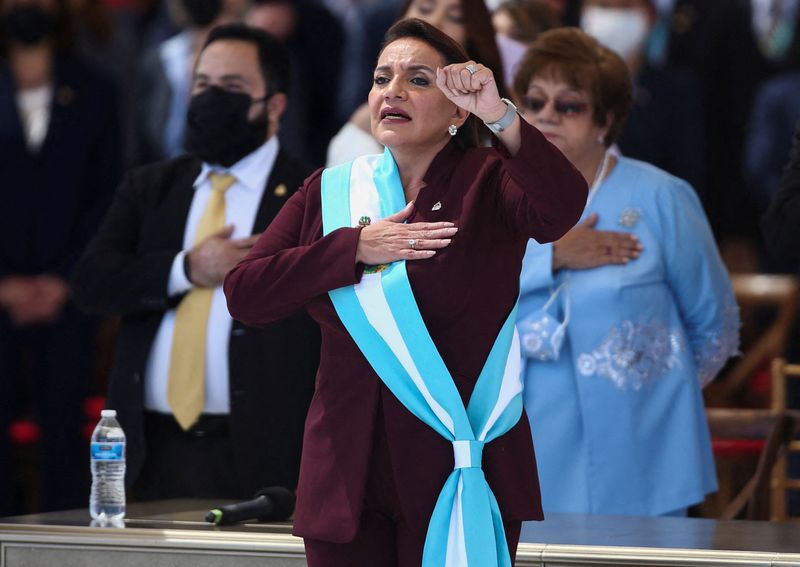TEGUCIGALPA – Congress in Honduras has authorized the government to borrow up to $2 billion in 2022 and 2023 in domestic and foreign debt under a fiscal and financial emergency decree aimed at easing imbalances in public finances, officials said on Wednesday.
The decree will also allow the government to meet a $166 million sovereign bond maturity scheduled for March 15 by accessing support funds from the International Monetary Fund (IMF) held by the Central Bank of Honduras (BCH), said deputy finance minister Elizabeth Rivera.
The initiative was proposed by the new leftist president Xiomara Castro, who upon taking office on Jan. 27, said she had taken charge of a state in “bankruptcy” from conservative president Juan Orlando Hernandez, who ruled for eight years.
“Congress approved a decree authorizing the government to take out loans, including through the issuance of sovereign bonds, for up to $2 billion this year and next year to address fiscal and financial problems,” congressional vice president Hugo Noe told Reuters.
Noe, a former finance minister, said the fiscal and financial emergency decree that was passed on Tuesday also authorizes the government to use $335 million in Special Drawing Rights (SDRs) provided by the IMF and held by the central bank to be used for budget execution.
Elizabeth Rivera, the deputy finance minister, said in the unicameral Congress the decree will allow the central bank to transfer the $335 million from SDRs, which will be used to pay the $166 million bond maturity scheduled for March and the rest to finance budget expenditures in the first quarter of the year.
Honduras had a total public debt of $15.679 billion at the end of 2021, representing 59.3% of gross domestic product, according to Ministry of Finance figures.
(Reporting by Gustavo Palencia; Writing by Drazen Jorgic; Editing by Robert Birsel)
